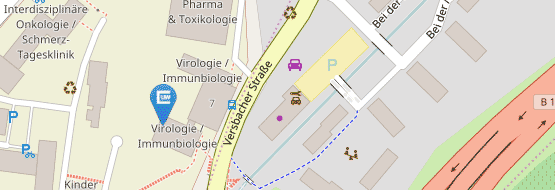Project P04
Understanding HCMV-specific T-cell immunity in immunocompetent and immunocompromised individuals to advance adoptive T-cell therapy
Prof. Dr. Britta Eiz-Vesper & Prof. Dr. Ulrich Kalinke
The induction of HCMV-specific T-cell responses in single individuals and their capacity to kill infected cells and to confer memory responses is still incompletely understood. More detailed knowledge about differences in the respective T-cell populations, in peptide presentation in the context of single HLA-I molecules that are expressed on HCMV-infected as well as cross-presenting APCs, and under the influence of viral inhibitors of antigen presentation is important. Despite the tremendous success of adoptive T-cell therapies in immunosuppressed patients with viral complications, reliable biomarkers predicting the therapeutic outcome are lacking. Furthermore, the efficacy of antiviral T-cell products for patients under immunosuppression still needs to be improved. This joint project aims at advancing adoptive T-cell therapy beyond the current state-of-the-art as a personalized and Good Manufacturing Practice (GMP)-compliant T-cell immunotherapy. In close collaboration with the other RU members, we will combine established approaches to (i) identify HCMV peptides that allow re-stimulation of clinically relevant HCMV-specific T cells (P01, P03, P07, P09 Z01), (ii) characterize clinical-grade small-scale T-cell products and identify HCMV-specific TCR sequences with high antiviral potential (P06, P07, P09, P01), (iii) analyze the antiviral efficacy of HCMV-specific T cells re-stimulated by directly or cross-presenting APCs (P05, P06, P07), and (iv) analyze the role of immunosuppression on the development and persistence of T-cell responses against HCMV (P06). Results will impact patient monitoring, T-cell donor selection and the design of HCMV-specific T-cell products. We aim to improve current immunotherapeutic strategies also with respect to immunosuppression and further treatment options using genetically modified effector cells (P09).

